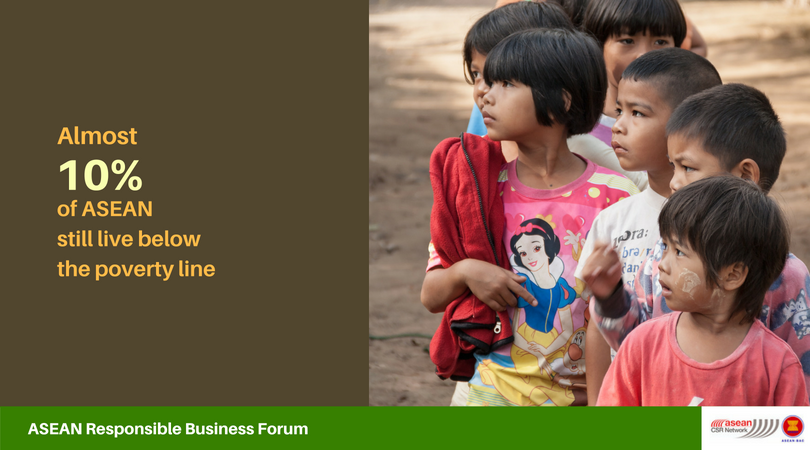ASEAN Community – how can we get there?

ASEAN was formed in 1967 as a means to create a stable regional order to promote economic growth, social progress and cultural development through multilateral cooperation.
51 years later, ASEAN is not only stable but economically thriving. ASEAN is the world’s sixth largest economy. As of 2015, the 10 ASEAN member states have a combined GDP of $2.43 trillion. McKinsey & Co. predicted that by 2050 ASEAN will be the world’s fourth largest economy.
In 2015, ASEAN leaders signed a declaration to proclaim that the region is now a Community. It was the 10 member states’ way of signalling to the world how the regional grouping has crossed an important milestone together through a journey of nearly half a century.
What does this Community look like?
The vision of the ASEAN Community as written in the declaration is one of an ‘integrated, peaceful and stable community with shared prosperity built upon the aspirations of and commitment of cooperation’.
It is a noble vision, but it also reflects the reality that there are gaps in ASEAN’s prosperity that has yet been filled.
ASEAN has done well to lift its people out of extreme poverty, especially in the last 20 years. In the early 1990s, nearly half of ASEAN’s population lived in extreme poverty1. Today, ASEAN has reduced the numbers drastically but there are still nearly 10% of the 369 million people in ASEAN living below the international poverty line of US$1.90 per day2 despite holding down jobs. In fact, in the 2017 Asia Pacific Sustainable Development Goals Progress Report, South-east Asia is the only subregion that has has seen widening inequalities3.
Of those living below the poverty line, 90% are living in Indonesia and Philippines, which has seen tremendous economic growth in the past 20 years. These working poor indicate to us that while the overall economy is thriving, inequalities still persist. This sizable population of working poor are unable to afford daily necessities in spite of employment and opportunities.
Clearly, something needs to be done to ensure that the prosperity is shared and all citizens in the region benefit from the wealth that has been generated.
A new emphasis in the ASEAN Vision is the development and promotion of Micro, Small & Medium Enterprises (MSMEs) in the region. MSMEs account for about 30 - 53% of GDP and over at least 51.7% of employment in ASEAN4. Being a key employer for many in ASEAN, it is vital to have MSMEs be part of the solution to bring about a fair distribution of wealth as well as the well-being of employees.
In fact, the ASEAN Vision and the Political-Security, Economic and Socio-Cultural Community Blueprints highlight cross-cutting development that will help move the region towards achieving its community building goal as a ‘stable community with shared prosperity’. The practice of CSR is featured extensively in the Blueprints. Be it is to instil and mainstream a culture of good governance and integrity, eliminating corruption, promoting and protecting human rights, improving labour standards, encouraging green growth, circular economy, sustainable consumption and production, or addressing the challenges of climate change, CSR has been cited as the mechanism to help build the ASEAN Community, to achieve inclusive, equitable and sustainable development in ASEAN.
Responsible businesses ensure that human rights, environmental and ethical concerns are integrated in business operations and offer companies new pathways for growth, a competitive advantage by enhancing organisational reputations, and the license to operate. Meanwhile, inclusive businesses treat people with dignity and respect, as agents of their own development. The result of responsible and inclusive businesses in ASEAN would then mean that business opportunities and prosperity are accessible at all levels of society - from workers to small business owners, suppliers to distributors - and carried out without degradation to the environment.
At the opening of ASEAN CSR Network’s ASEAN Responsible Business Forum in 2015, the Network Chair, Ms Yanti Triwadiantini said: “Words are important but actions worth more. We believe that CSR, if implemented strategically and holistically can… transform companies from merely profit-driven entities into agents of change for responsible and sustainable development.”
Indeed, the actions of all segments of the population – including the business community of ASEAN – would be crucial to make the words of the ASEAN Community declaration reality.Want to be a part of the driving force to make the vision of the ASEAN Community a reality? Join business and civil society leaders, officials and subject experts in Singapore for the ASEAN Responsible Business Forum on 27 and 28 August 2018. Learn how your business can be agents of change for responsible and sustainable development. Speaker include business leaders from Intel, City Development Limited, Singtel, Swire Pacific Offshore and Mars Wrigley Confectionery as well as experts from United Nations Development Programme, United Nations Environment Programme, United Nations Working Group on Business and Human Rights, United Nations Office on Drugs and Crime (UNODC), WWF International, ASEAN Intergovernmental Commission on Human Rights (AICHR) and NUS Business School. Full speakers list at https://aseanrbf.org/speakers
Register now at https://aseanrbf.org/----------
1 Report of the ASEAN Regional Assessment of MDG (Millennium Development Goals) http://asean.org/storage/2015/12/ASEANRegionalassesment_e72555285d95383ff12a91d01fca94e9.jpg
2 ‘90 percent of Southeast Asia’s poor live in Indonesia and the Philippines’, Asian Correspondent, 20 Nov 2017 https://asiancorrespondent.com/2017/11/90-percent-southeast-asias-poor-live-indonesia-philippines/#0ucqLFPHRhs9YEVP.99
3 Asia Pacific SDG Progress Report 2017 https://www.unescap.org/sites/default/files/publications/Asia-Pacific-SDG-Progress-Report-2017.pdf
4 SME Developments in ASEAN http://asean.org/asean-economic-community/sectoral-bodies-under-the-purview-of-aem/micro-small-and-medium-enterprises/overview/
